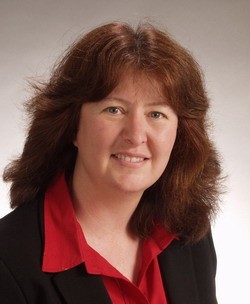Pharmacists are the recognised medicines experts, but is New Zealand making the most of their skills?
Professor Jackie Cumming from Victoria University of Wellington has received a $1.2 million project grant from the Health Research Council of New Zealand (HRC) to explore the effects of changes to community pharmacy services in New Zealand, particularly the emphasis on extending the role of pharmacists.
“Significant changes to the role of community pharmacies in New Zealand are expected to occur over the next few years, with a view to improving access to services, keeping people well within the community, and making the most of primary health care practitioners’ skills,” says Professor Cumming.
However, despite the focus on extending community pharmacy services and roles both nationally and internationally, Professor Cumming says the overall evidence base to support this extension is not strong.
“This research will provide an in-depth understanding of whether or not extended community pharmacy services are developing as expected in New Zealand, identify what is working well and what isn’t, and the extent to which a range of health and health system outcomes are or aren’t being achieved,” she says.
There are more than 900 community pharmacies nationally, and in 2014 more than 80 per cent of registered practising pharmacists in New Zealand were employed in the community pharmacy setting.
HRC Chief Executive Professor Kath McPherson says that the role of pharmacists has historically been to dispense medicines. However, more recently the government has developed a number of key national strategies to extend this role to improve access to primary health care and deliver more preventative public health services.
“A really important part of this research is the emphasis on understanding the perspectives of people who are actively using extended community pharmacy services, especially Māori, Pacific, and lower-income New Zealanders. We need to significantly improve access to primary health care services if we are going to reduce the widening health inequalities in New Zealand,” says Professor McPherson.
The HRC has also announced funding for another project with a strong community health focus. Pacific health researcher Dr Gerhard Sundborn from the University of Auckland has received funding to determine the effectiveness of a school and community-based intervention to reduce the intake of sugar sweetened beverages (SSBs) and unhealthy weight gain in Māori and Pasifika youth.
“Sugar-sweetened beverages are the leading source of added sugar for New Zealand children, and intake of these beverages is much higher in Māori and Pacific children. A high intake of SSBs is a risk factor for obesity, type 2 diabetes, and poor oral health,” says Dr Sundborn.
“Overseas evidence shows promise that school projects can reduce SSB intake and obesity, but it’s important we show that such interventions are effective in the New Zealand context,” he says.
Professor Jackie Cumming, Victoria University of Wellington
Exploring the development and impact of changes in community pharmacy services
42 months, $1,185,380
Dr Gerhard Sundborn, University of Auckland
Communities fighting sugar in soft drinks
48 months, $1,176,875
